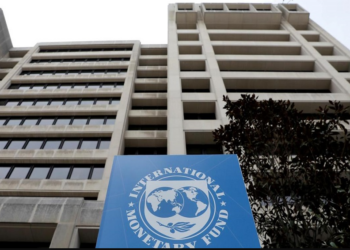The FCT Primary Health Care Board (FPHCB) announced the end of the first round of Covid-19 vaccinations on the 14th of May, signalling that Nigeria had ended the first phase of the covid vaccinations which has so far helped reduced Nigeria’s infection rate to less than 50 cases per day, compared to over 500 during the peak of the second wave.
Last week, the federal government gave the green light for the commencement of the administration of the second dose of the Oxford-AstraZeneca Covid-19 vaccines on eligible Nigerians who had received their first shots.
On a visit to a Federal Hospital in Abuja where vaccinations are given, a nurse speaking anonymously disclosed to Nairametrics that the administration of the second dose of vaccinations is expected to commence sometime between the last week of May and the first week of June 2021.
Vaccination rate at the end of the first phase
At the end of the first phase on the 15th of May, 2021, Nigeria had used 89.2% of its first phase proportion, vaccinating 1,794,552 residents, according to the National Primary Health Care Development Agency.
Lagos State recorded the most vaccinations at 279,372, vaccinating 101% of its proportion, with the FCT vaccinating 96% of its proportion at 118,895.
Expectedly, Kogi State, which was one of the last states to resume vaccinations, has only vaccinated 14,401 residents, which is 66% of its first phase proportion.
Covid-19 cases
On the 15th of May, 2021, Nigeria recorded just 41 cases of Covid-19 infections, according to the NCDC, with a total number of confirmed cases at 165,702 and 2066 recorded deaths.
Nigeria joins the rank of nations witnessing reduced infection rates with increased vaccination rates, even with large-scale vaccine hesitancy trumpeted by conspiracy theorists through religious organisations and dodgy whatsApp broadcasts.
COVAX
Nigeria’s vaccine success so far would not have been possible without the COVAX scheme, the World Health Organization (WHO) and the Global Alliance for Vaccines and Immunization (GAVI). According to data from Reuters, Nigeria received the most AstraZeneca vaccines from the program at 3.9 million doses on March 2.
From the Reuters report, other African countries in the scheme include:
• Ivory Coast (504,000)
• DRC (1.7 million)
• Angola (624,000)
• Kenya (1 million)
• Ghana (350,000)
• Egypt (1.7 million)
Local vaccine production
The pandemic has also exposed the need for vaccines to be locally produced in Africa, as roadblocks to purchasing sufficient doses for African nations have led to “vaccine nationalism” globally.
WTO boss, Dr Ngozi Okonjo-Iweala urged in March that Nigeria should start looking at establishing the capacity for manufacturing vaccines locally, stating:
“I’ve been in the vaccine business for the last 5-6 years. You need 4-5 years to get a plant approved to produce vaccines. I’m advocating that Nigeria should start looking now at establishing the capacity for manufacturing vaccines locally. This is not going to be the last pandemic.”
Minister of Health, Dr Osagie Ehanire disclosed earlier this year that the Federal Government, through the Ministry of Finance, announced the sum of N10 billion for the production of vaccines in Nigeria, to fight Covid-19, citing that Nigeria was exploring options for licensed production, in collaboration with recognised institutions, while also exploring the option of local production of the vaccines in the country.
The call for local production was also helped by the United States President who announced support for the waiver of Intellectual Property Protections on Covid-19 vaccine development, in a bid to boost the fight against the pandemic, stating that the US would participate in the Okonjo-Iweala-led WTO negotiations to actualize it.
The Nigerian Medical Association added that the Federal Government should take the Local Vaccines Production (LVP) pipeline seriously and said the FG’s Joint Venture deal with May and Baker Plc should be prioritised to ensure the success of Biovaccines Nigeria Ltd.
The US vaccine waiver has given African nations the motivation to prepare for the next pandemic which experts warn may be possible in the next 5 years as vaccines become the most important commodity in the world in 2021.
The economic impact of vaccines
The International Monetary Fund has lifted its global growth outlook to 6% in 2021 (0.5% point upgrade) and 4.4% in 2022 (0.2 percentage point upgrade), after an estimated historic contraction of -3.3% in 2020 due to the effects of the COVID-19 pandemic.
For Africa, IMF forecasts economic growth of 3.4% in 2021 and 4% by 2022. Nigeria is expected to grow by 2.5% in 2021 and 2.3% by 2022, while South Africa is projected to hit growths of 3.1% and 2.0% for the respective years in focus.
IMF warned that a continued lack of access to vaccines would see Africa’s projected growth at 3.4% compared to the rest of the world at 6%.
“In 2021, the region’s economy is expected to resume expansion at 3.4%, weaker than the 6% for the rest of the world, amid a continued lack of access to vaccines and limited policy space to support the crisis response and recovery.
Macroeconomic policies will in many countries entail some difficult choices. Saving lives remains the first priority, which will require access to affordable vaccines, ensuring that the logistical and administrative prerequisites of vaccination rollouts are in place, targeted containment efforts, and added spending to strengthen local health systems,” they stated.
The IMF further stressed the need for Nigeria to achieve 100% of its proportion, as the present 89.2% was not enough. Nigeria, Africa’s largest economy, is part of a sub-Saharan bloc that would experience less economic expansion compared to the rest of the world as a result of less access to vaccines for its citizens.
Bottomline
The Covid-19 pandemic is not over and several health experts have warned that the pandemic may persist for some time. The need for local vaccine production in Nigeria cannot be overstated as access to vaccines will play a major role in economic reopening and expansion.





















